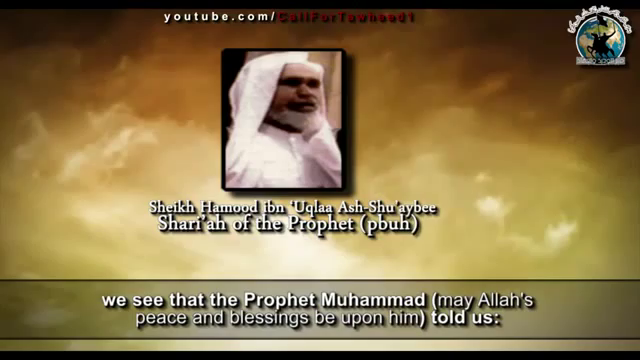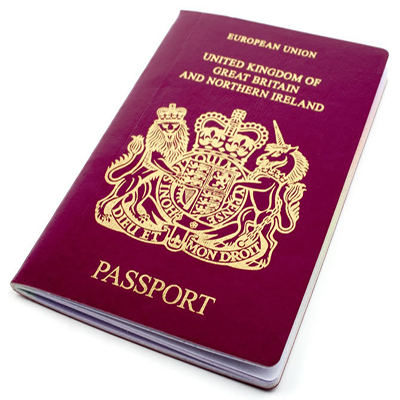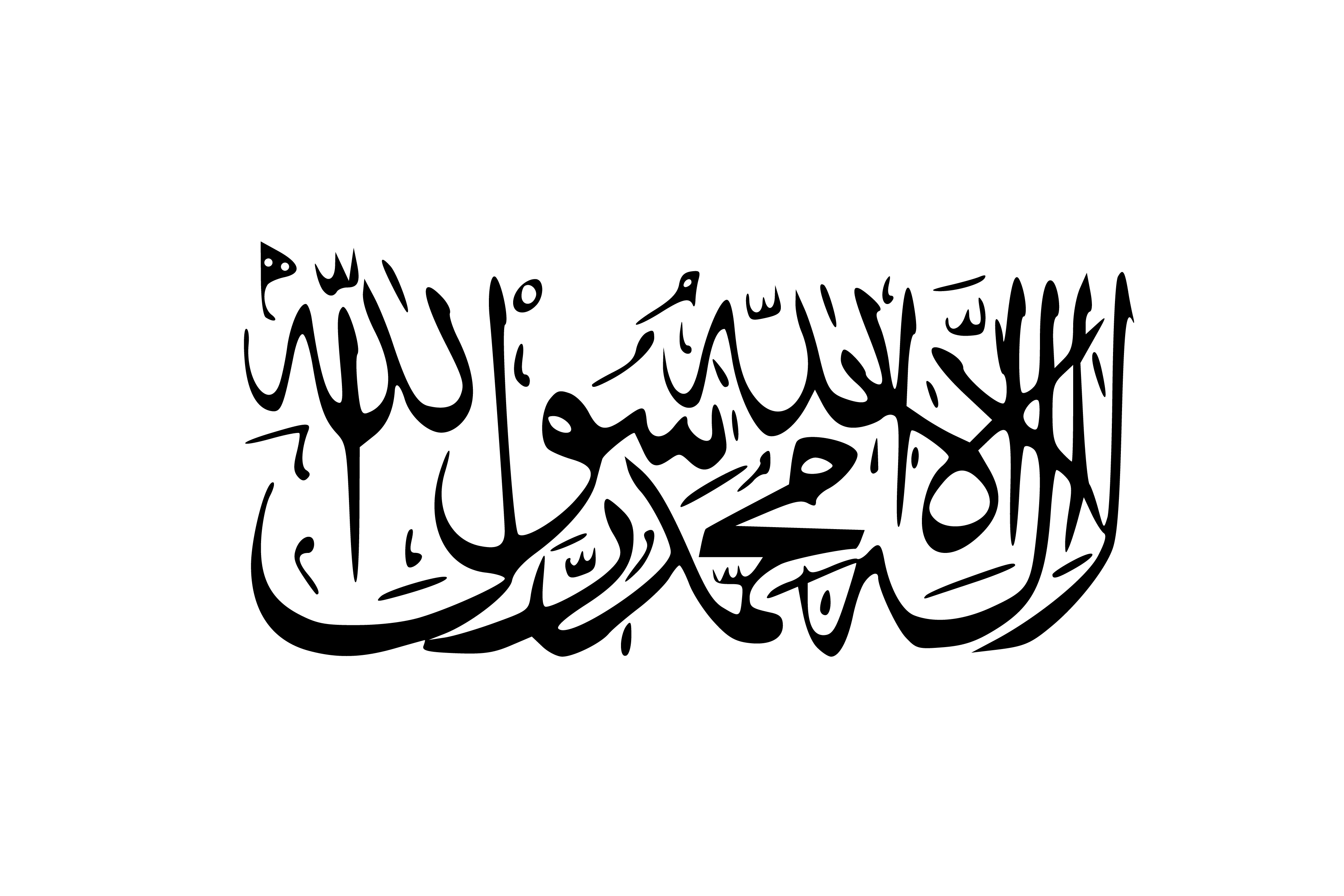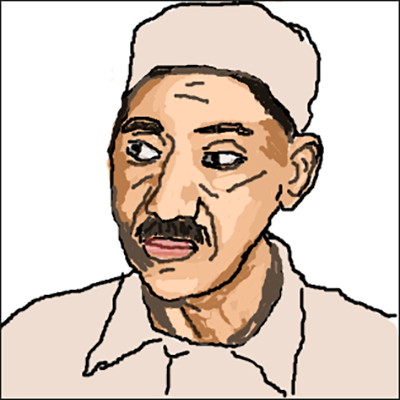He is Abu Abdullah Hamud bin Abdullah bin Uqla' bin Muhammad bin Ali bin Uqla' ash-Shu'aybi al-Khalidi from Ale Jinah, from the tribe of Bani Khalid. His fifth great grandfather (Uqla') migrated rom the Eastern Province of the Arabian Peninsula to Shaqra’ and then to Qaseem and settled there.
His brother migrated to al-Jawf and settled there. Al-Uqla' are from the people of al-Jawf and are their paternal cousins.
He was born in the city of ash-Shaqqah which is one of the northern districts of Buraydah, in Qaseem Province, (which lies between the cities of Riyadh and Madinah, in the Arabian Peninsula), in the year 1925 CE (1346AH) and was raised up there. When he reached the age of six, his father enrolled him with scribes and so he learnt reading, writing, and arithmetic. Once he had mastered these, he moved on to the recitation of the Qur'an. At seven years of age, he lost his eyesight as a result of smallpox which had spread across many areas of the country and that was in the year 1931 CE (1352AH).
Nonetheless he continued his studies with the scribes, upon the wishes of his father (رحمه الله). For it was his father who had made him memorise the Qur'an before he went to the scribes which he did so under Shaykh Abdullah bin Mubarak al-Umary. By the age of thirteen, he had memorised the Qur'an, 1938 CE (1359 AH). However, it was not until the age of fifteen that he had mastered the memorisation and tajweed 1940 CE (1361AH). His father played a major part in his upbringing and education and he was (رحمه الله) eager that he be from amongst the students of knowledge. After memorising the Qur'an, he worked with his father in the field as far as he was able to, pollinating the date-palms and cultivating the land.
Studies in Islamic Knowledge
Then in 1946 CE (1367AH) he travelled to Riyadh to seek knowledge, upon the instruction of his father (رحمه الله). And he started to study knowledge with the blessed Shaykh Abdul-Lateef bin Ibrahim Al-ash-Shaykh. He completed Al-Ajrumiyyah, Usul ath-Thalatha, Rahbiyatu fil-Fara'id, and Qawa'id al-Arba'ah which he memorised and understood.
Then he went to read with His Eminence, Shaykh Muhammad bin Ibraheem Al-ash-Shaykh 1947 CE (1368AH). And he started by reading Zad al-Mustaqni', Kitab at-Tawheed , Kashf ash-Shubuhat, Al-Wasitiyyah, Al-Arba'een an-Nawawiyyah, Alfiyatu Ibn Malik, Bulugh al-Maram; these were all read with the Shaykh as a basic requirement. He then combined these with other books, which he used to read alone with the Eminent Shaykh (رحمه الله) – such as At-Tahawiyyah, Ad-Durrah al-Mudayyinah by as-Safareeni and Al-Hamawiyyah by Ibn Taymiyyah. He read these alone with the Eminent father, Shaykh Muhammad bin Ibraheem (رحمه الله) until the Institute of Knowledge was opened in 1950 CE (1371AH). This was the first institute of its kind to be opened in the region. The Shaykh memorised all these books just like he had memorised Surah al-Fatihah. The Shaykh mentioned that the one who had most influence upon him was his eminence former Mufti of the country, Shaykh Muhammad bin Ibraheem (رحمه الله). His father (رحمه الله) was an ordinary person and he would only read the Qur'an without memorising it. However, he used to make the Shaykh memorise the required daily Juz (parts of the Qur'an) every day before he went to the scribes. Some of the Shaykh’s teachers include:
- Shaykh Abdul-Aziz bin Baz (رحمه الله) who taught him Tawheed and Hadeeth
- Shaykh Muhammad al-Ameen ash-Shinqeeti
- Shaykh Abdur-Rahman al-Afreeqi - an excellent scholar in Hadeeth
- Shaykh Abdul-Aziz bin Rasheed - a distinguished scholar who taught him Fiqh
- Shaykh Abdullah al-Khulayfi and Shaykh Hamad al-Jasir who taught him composition and dictation
- A number of scholars from Egypt who taught him grammar and rhetoric, including Shaykh Yusuf Umar Husnayn, Shaykh Abdul-Latif Sarhan and Shaykh Yusuf ad-Daba’
- Shaykh Sa'ud bin Rashud, The Judge of the Riyadh court
- Shaykh Ibrahim bin Sulayman
Teaching
In 1955 CE (1376AH), the Shaykh was appointed teacher in the Institute. And between 1956 - 1985 CE (1377 – 1406/1407AH), he was a teacher in the university, after which he was made to be retired. At the university, he taught: Tawheed, Fiqh, Fara'id, Hadeeth, Usul, Rhetoric, Grammar, as well as all the other subjects which are usually taught at the College of Shariah. He also supervised a number of theses at Masters and Doctorate level.
Some of His Students
- General Mufti Abdul-Aziz Al-ash-Shaykh, the current Mufti of Saudi Arabia and Head of the Committee of Senior Scholars
- His Excellency, Dr. Abdullah bin Abdul-Muhsin at-Turki, former Minister of Islamic Affairs
- His Excellency, Dr. Abdullah bin Muhammad bin Ibrahim Aal-ash-Shaykh, Minister of Justice
- Dr. Shaykh Salih bin Fawzan al-Fawzan – member of Committee of Senior Scholars
- Shaykh Ghayhab al-Ghayhab
- His Excellency, Shaykh Judge Abdur-Rahman bin Salih al-Jabr
- His Excellency, Shaykh Judge Abdur-Rahman bin Ghayth
- Shaykh Abdur-Rahman bin Abdullah bin al-‘Ajlan, former Head of the Courts, Qaseem Province
- Shaykh Sulayman bin Muhanna, Head of Riyadh Courts
- Shaykh Abdul-Aziz bin Abdur-Rahman as-Sa’eed, Head of the Committees for Enjoining Good and Forbidding Evil
- Shaykh Muhammad bin Muhawass, Head of Investigation and Prosecution
- Shaykh Dr. Abdullah al-Ghunayman
- Shaykh Hamad bin Faryan, Former Attorney of the Minister of Justice
- Shaykh Ibrahim bin Dawud, Attorney of the Ministry of Interior
- Shaykh Abdul-Aziz ibn Salih al-Ju'ee
- Shaykh Salih al-Luhaydan, Head of the Supreme Council of Judges and Shaykh Muhammad bin Salih al-Uthaymeen but only as a substitute teacher in the College of Shari'ah
- Shaykh Ali al-Khudayr
- Shaykh Salman bin Fahd al-Awdah who studied Nahw with him
- Shaykh Ahmad Musa Jibril
Whilst working at the university, the Shaykh assisted in reviewing the attainments of a number of scholars and doctors as part of their approval for promotion to Phd Level. These included:
- Abdul-Qadir Shaybah al-Hamad
- Abu Bakr al-Jaza’iri
- Muhammad Aman al-Jami as-Somali
- Rabi’ bin Hadi al-Madkhali
- Muhammad bin Salih al-Uthaymeen
The Shaykh expressed a desire to participate in radio programmes, but he was not permitted to do so. In 1957 CE (1378AH) the Shaykh performed his first Hajj, for which he travelled by car. At that time, the road was not even, and it was all desert. The journey from Riyadh to Makkah took nine days, the cars were not very good, and the route was tough. The Shaykh’s sons and daughters used to help him read and write and he has written a number of research papers which include:
- The Supreme Imamate (Leadership), Related to the rules of Islamic Governance
- Demonstrable Proofs on the Certainty of Iman in Allah and the Last Day
- The Preferred Statement Regarding the Ruling of One Who Seeks Assistance from the Disbelievers
- Tasheel al-Wusul – Written in conjunction with Shaykh ‘Atiyyah Salim and Shaykh Abdul-Muhsin al-Abbad
- Collection of approximately 100 fatawa which include criticism of certain current issues, and an explanation of some rulings.
- Explanations on At-Tadmuriyyah, Al-Wasitiyyah and Al-Hamawiyyah of Ibn Taymiyyah
- An explanation on the matn of At-Tahawiyyah and Al-Ajrumiyyah and many others...
Love for the Mujahideen
His life revolved around Jihad and the Mujahideen. He was always following up news of Jihad everywhere. In fact his stance in matters of Jihad were well known for he spoke when others were silent. He always spoke that which he believed to be the truth and feared none but Allah. He was one of the few scholars inside the Arabian Peninsula to publicly declare the Saudi rulers as disbelievers, for their assistance of disbelievers against Muslims. For this reason, despite being blind and in his seventies, the Shaykh was imprisoned for a period in 1995.
He had an amazing stance toward the current situation of the Mujahideen in Afghanistan, to the extent that some of his closest companions feared that something may happen to him. One of his close students said:
Most of his night was spent in supplication for the Mujahideen in Afghanistan. He was a very-soft hearted person who was easily moved to tears. Whenever there was any good news he would cry with happiness and whenever there was bad news he would cry out of sorrow. Whenever anyone defamed the Mujahideen, he would become extremely angry. His students used to know the current situation of the Mujahideen just by looking at his face as he entered his circle of knowledge. After the fall of Kunduz, he became so upset that his students feared that he would die of sorrow, he kept on repeating 'Where are the Muslims?', Where are the Muslims?'
He was very pious and an ascetic. He was also a very strenuous worshipper. He supported the truth and its people and was harsh on corruption and its people, He was very courageous and brave and disregarded the consequences of speaking the truth. This was despite the fact that some of the his close companions urged him not say all that he did – but he did not sway. He was one of the first scholars in the Arabian Peninsula to issue a public fatwa calling upon the Muslims to support the Taliban. After the events of 11 September 2001, whilst many in the Muslim World were siding with America and grieving for it, he issued fatawa clarifying the truth and called upon the Muslim Ummah to come to the support of the Taliban and the Foreign Mujahideen in Afghanistan. Many of his students answered the call and went to Afghanistan, of which some were martyred.
Shortly before he died, he issued a letter to the Islamic scholars in Pakistan, together with his students, Shaykh Sulayman al-Alwan and Shaykh Ali al-Khudayr. He also wrote a letter of encouragement to Ameer-ul-Mu'mineen Mulla Muhammad Umar Mujahid.
Death
The Shaykh rahimahullah passed away on Friday the 4th of Dhul-Qa'dah 1422AH, 18th of January 2002. Thousands of people attended his Janazah.
O Allah! Forgive Shaykh Hamud bin Uqla' ash-Shu’aybi and cover him with Your Mercy, Expand and enlighten his grave, Make his grave a garden from the gardens of Paradise, Save him from the trials in the grave, Save him from the great terror on the Day of Judgement, Save him from the reckoning on the Day of Account Ameen.






